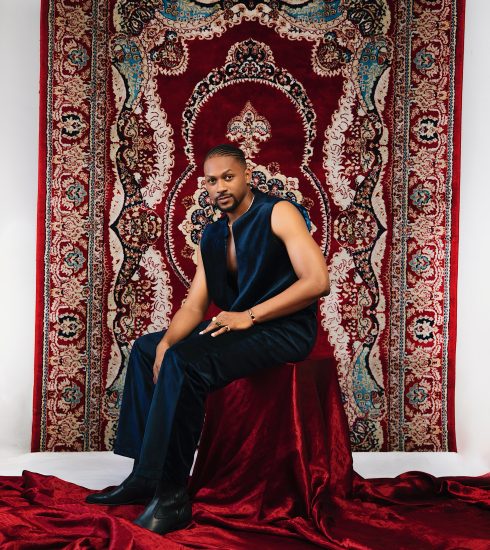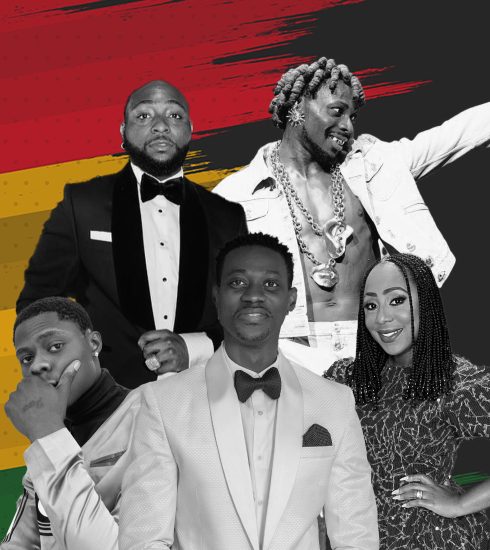Dr. Maymunah Kadiri: Your Friendly Neighbourhood Celebrity Shrink
It’s Mental Health Awareness Month, and the theme for this year is Community. The stigma and guilt around mental health have given way to transparency and support over time. More people are now talking about depression, anxiety, trauma, and emotional well-being. However, this shift didn’t happen suddenly. It required a lot of effort from passionate advocates who have devoted their lives to spreading knowledge, establishing safe spaces, and eliminating stigma. These people serve as a reminder that mental health is equally vital to physical health and requires serious attention.
Dr. Maymunah Yusuf Kadiri, also known as Dr. May or The Celebrity Shrink, is one of the most influential voices in this space. With almost two decades of experience, she is a Nigerian neuro-psychiatrist, psychotherapist, and mental health coach. She has facilitated the healing of thousands of people as the Medical Director of Pinnacle Medical Services, the leading mental health and psychology clinic in Nigeria. Through her writings, community service, telemedicine app HOW BODI, and films like Little Drops of Happy and Pepper Soup, Dr. Kadiri has continued to educate people about mental health in ways that truly connect. Her efforts go beyond the clinic; she employs public platforms, art, and technology to raise awareness, create communities that promote mental health, and support those in need. Pinnacle Medical Services has evolved into a trusted brand, setting the standard for how mental healthcare should be delivered in Nigeria and across Africa.
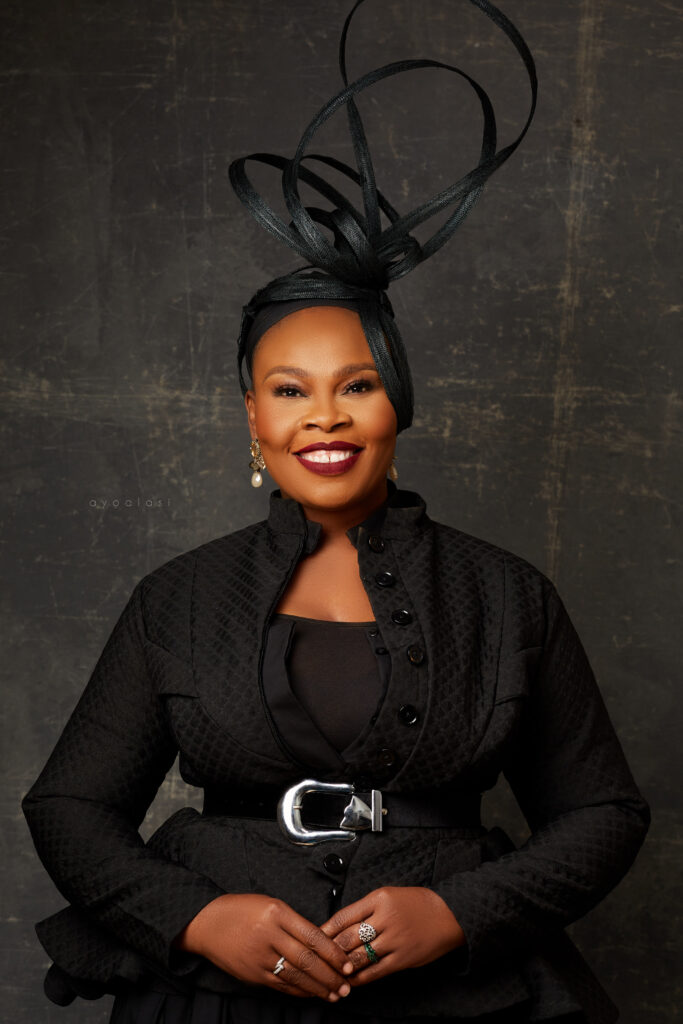
In this interview with THEWILL DOWNTOWN’s Dorcas Akintoye, Dr. Maymunah Kadiri discusses her journey as a psychiatrist, her passion for mental wellness, the impact of her work, the role of community in mental health, and why finding inner peace matters now more than ever.
You’ve often been described as a trailblazer in Nigeria’s mental health space. What first sparked your interest in psychiatry and mental wellness?
My interest in psychiatry was sparked by a deep drive to understand the unseen struggles behind the human face. The kind of emotional and psychological pain that often goes unnoticed, especially in clinical settings. Moreover, being in medical school, psychiatry is the first thing that you must go through. Depending on the medical school, between four to six weeks is your first encounter with psychiatry or what we call mental health. That was my very first interest in my encounter with mental health. And I just realised how in a room and in a sitting and in just one conversation, you could understand certain ways people behave, and what their personality would look like. But to further reinforce that, in my housemanship, one moment stood out for me. It was a traumatic experience of managing a young man who survived a brutal armed robbery attack. And he only passed away just before meeting his first son. So he dropped his wife off. She was in labour. And on his way back, he was attacked by armed robbers. And so the woman had given birth while we were operating on him. He woke up after the operation, and he was able to speak to his wife. And the wife said, “You have a beautiful son. I’m hoping that you’ll get to carry him one day”. But that never happened. That case didn’t just involve physical trauma. It exposed me to the raw emotional and mental toll of violence, loss, and unspoken suffering. So that powerful encounter from the medical school, of course, to this very encounter when I was doing my house job here in Lagos, and many other encounters revealed to me that healing is not just about sutures and surgery. It’s more about the stories, the scars, the silent cries that people go through. So psychiatry has offered me that path to treat not just the body, but the mind and the soul. So the empathy it brings, the curiosity, and the desire to advocate for those whose pain can’t be seen on X-rays or test results have made mental health my calling.
Looking back on almost 20 years in the field, what would you say has been your most rewarding experience as a neuropsychiatrist and mental health advocate?
It’s most likely seeing stigma break right before my eyes, especially in spaces where silence used to reign. Stigma is still widely held towards mental health and people living with mental illnesses, but it’s not as bad as it used to be. The mental conversations are ongoing. People are willing to come out and talk about mental health. The millennials are the therapy generation. Gen Zs are added to it. The alpha generation has even gone bizarre when it comes to mental health. Even though we understand that sometimes it may be about attention seeking, it may be about some of them using it to give excuses, but the conversations are ongoing. And one standard moment would be the success of our Mental Health Conference. The third year is also going to happen by October 5th this year, and it has gone without funding. But the truth is that it’s not just because of the scale of courage it has taken me to do this, but because of what happened during and after these conferences. I’ve seen people stepping forward to share their mental struggles for the first time. I’ve seen leaders, founders, Africans, because it’s not just in Nigeria; Ghanaians, people that are in Nigeria, they come around physically, and people joining online, finally permitting themselves to seek help. And of course, an entire room of Nigerians beginning to unlearn shame and embrace vulnerability. So this is not just about theory for me, it has been transformational, and I’ve turned, with time, private pain into public healing, helping individuals and institutions shift from silence to solution.
You wear many hats as a physician, coach, author, filmmaker, and speaker. How do you balance these roles, and how have they shaped your advocacy?
These are not just impressive, because when people hear, oh, you’re this, you’re this, they are not just impressive, for me, they are very intentional. I haven’t just collected these titles for prestige or for the name. I’ve worn these hats to create impact on every level where mental health is misunderstood, ignored, or stigmatised. As a physician, I’ve been able to bring scientific credibility. As a coach, I’ve been able to empower transformation one mind at a time. As an author, I’ve been able to make complex truths digestible and relatable. If you’ve ever listened to any of my webinars, I’m good with acronyms. People call me the Queen of acronyms, and I do this because our attention span is very short. So, what are you going away with if you encounter the person called Dr. May? As a speaker, I’ve given voice to the silent struggles of many millions. And of course, as a filmmaker, I’ve defined truth visually, taking mental health out of the feelings and into the culture. Because we know what filmmaking is all about and how we are engrossed with Nollywood and Bollywood. So for me, these are the things that I’ve been able to bring up. And balancing these roles hasn’t always been very easy, I must tell you. But it has made my advocacy multidimensional. And I don’t just talk about mental health, I humanise it, live it, and storytell it across platforms where it matters the most. And this approach, with time, you know, has made my impact resonate across generations. My analytics online spans people between the ages of 25 and 34. And not only across generations, but also from the corporate leaders to everyday Nigerians. And this is proof that mental health isn’t just a one-size-fits-all. It’s everywhere and needs a voice in every room.
What has been the most challenging part of your journey as a psychiatrist in Nigeria, especially in an environment where mental health is still widely misunderstood?
The most challenging part of my journey being a psychiatrist is breaking through deeply rooted cultural stigma and systemic silence. Stigma is still so huge, and culturally, we know how it is. So in a society where emotional distress is often spiritualised, silenced, or even dismissed because if you complain that you are dealing with depression, people will say go and sit down, everybody in Nigeria is depressed, they easily dismiss such things. So as a witness, we also have to understand that there’s a lot of work that needs to be done. And work that needs to be done to create awareness, to make people speak up, to let people understand that speaking up is a strength, not a weakness. And over time, I’ve sat in rooms where people just came back from the prayer homes, because that is where the relatives knew they could go, and in those prayer homes they were ashamed, and the time it took them before they eventually were able to speak to a doctor.For some people, it took weeks, months, and some people even took years. So you find out that talking about mental health has to be constantly done. So I’ve been able to educate, re-educate, and advocate in spaces where mental illness is treated as taboo. And yet, I’ve stayed in those places and I’ve chosen this hard path. The reason is that, you know, building platforms, doing conferences without funding, entering boardrooms, schools, media, even filmmaking is a push that this message needs to be heard, and this message needs to be not just heard, but experienced. So, waiting for systems to change, I have to become a change agent, and I have to make sure that I’ve moved a whole ecosystem to talk about this mental health and let people understand that speaking about mental health is as important as our physical health. Sometimes, if not all the time, more important. And that persistence has helped to normalise therapy, bring mental health into public discourse, and empower thousands to seek help openly.
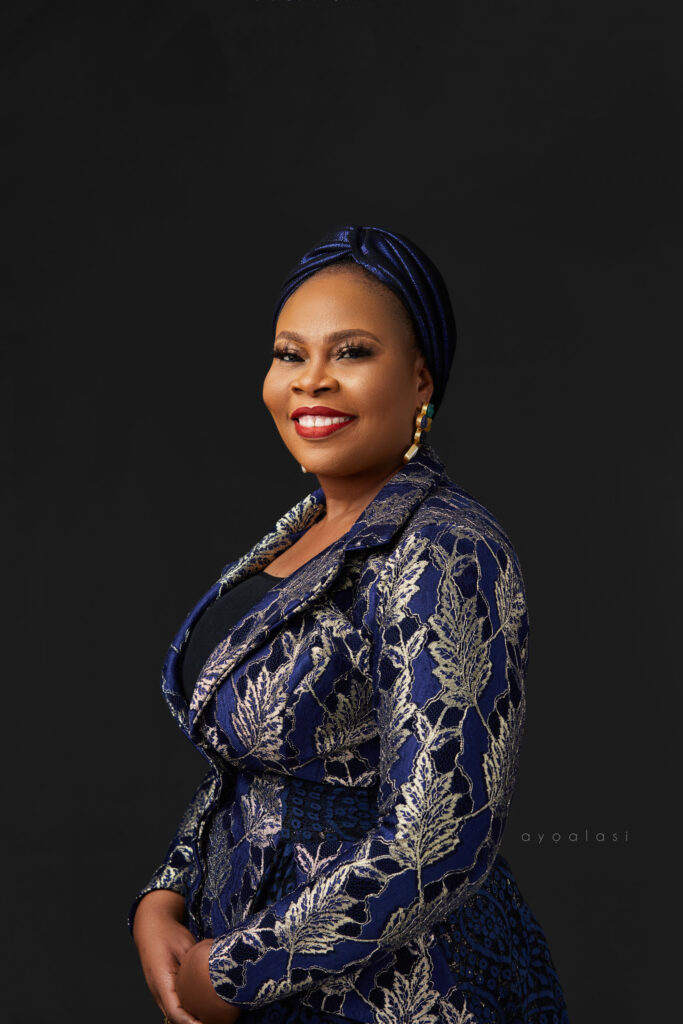
Pinnacle Medical Services is now seen as a leading mental health clinic in Nigeria. What inspired its creation, and how has it evolved over the years?
So, Pinnacle Medical Services, let me take you back to my residency days. I did my residency in the Federal Neuro-psychiatric Hospital, Yaba. That place is over 110 years old now. And as you are doing residency, there are other people. I think we came in as 16 young doctors who wanted to do residency. Residency is six years, by the way. We were two females and 14 males. At the end of the six years, I think we were not up to 10 who finished the residency program. But aside from that, when I say finishing a residency program it means you become a consultant at the end. Not everybody becomes a consultant. Some people drop off. There’s an exam every two years, and you can fail out. So it’s not so easy that you just go in and then you are done. So that period brought two things to the forefront. Number one, I saw people who had done six years in medical school. That’s if there was no strike. In our days, there was always strike. So some of us spent eight or 10 years. So let’s put that aside. They did a one-year housemanship. They did one year in service. So it’s about 10 to 12 years we’ve done. Then you come back and do residency, which is mandatory for six years. So some people do about 18 to 20 years, and then they don’t have a job. That took me aback. I’m like, you spend how many of these years? What do we do? And then somebody’s telling you that there’s an embargo on employment. Because most people were always looking for public institutions to do their thing. They’re not looking at the private sector because it’s a comfort zone. You finish, you’re there, and you’re a consultant. You do the minimum, barest minimum, and then just move on. So I needed to set up a private practice. The second reason was that while there, people would come and say they don’t want to be here we’ll say very highly stigmatised. And it’s public, right? It’s a government institution. Anybody can walk in. So that’s okay. Not only a private institution, or a mental health facility, but also where people can have options, have options where they can come to. And then we give them several other reasons why they can step into a place like ours and build an ecosystem. But during the early years in the emergency room, you know, I kept meeting patients who weren’t on the x-ray, you know, survivors of armed robbery, like I said earlier, women with postpartum depression, founders on the brink of burnout, and people patched up medically, but discharged with bleeding minds. So for us at Pinnacle, we created that gap between physical survivor and psychological healing. And that place was Pinnacle Medical Service, where mental health is as urgent and dignified as any surgical theatre. The second reason was to break the stigma and stigma that silenced too many stories. Why? Because I was just tired of seeing families with relatives to pray at homes or change them at home, because therapy is for crazy people. Because that’s what people were saying initially. So creating that hospital that will feel warm, science-driven, and of course, culturally fluent, because it became a personal counter-narrative. This is just to make sure that we prove professionals can help with compassion, confidentiality, and, of course, it is normal. Another reason for Pinnacle is the fact that I wanted not just a city-centred consulting room that only executives could afford, but a place where anybody could come in, teenagers, the entire community, you know. And this was a place that was a one-stop centre. And that is how we talk about Pinnacle, the preventive end-to-end of prevention for treatment, because we have a co-embedded in-patient admission right now. We have the psychiatrist, we have the psychologist, we have the psychotherapist, we have the psychiatric nurses, the coaches, the occupational therapists, like a one-stop centre. And Pinnacle has been built to meet people at their needs. So the first time we started Pinnacle, it was as a one-room facility, but then, as it is now, we’re in two duplexes, occupying several rooms and 12-bedded in-patient admissions. And it has evolved from managing over 30 corporate organisations and, that gave us over 3 million Nigerians we are managing with their families as it is. So we have a service called the Employee Assistance Program, and Pinnacle is leading that path, not just for prevention, but for treatment. Why? Because the call centre will receive calls anywhere you are in the world, and it’s also WhatsApp-enabled. We also have the in-patient, if you need help and you need admission, that is integrated. The other part is the fact that we developed the telemedicine hub or the platform, which is, you know, helping to bridge the mental health gap that’s affordable, accessible, and available to Nigerians to use. And several other things like the movies, Little Drops of Happy, Pepper Soup, and of course, our new baby, The Mental Health Conference that we launched two years ago and is still ongoing. The How Bodi app, we are also deploying it into mobile counselling booths. I’m hoping that with the project we have on ground, people can walk into any of our counselling booths anywhere, in the malls, in the parks, and just receive therapy in those cute little cubicles, and people can just be safe anywhere they are around the world. And so this has created a ripple effect with over 100,000 hours of therapy that we’ve delivered in-person and virtually serving over 30 corporate organisations with over 3 million Nigerians, and also collaborating with universities for research and development. Because truly that’s the only way we can move forward when we are data-driven and working on data. We want to be able to give, when they say the business outlook of Nigeria in 2025, we also want to give Nigerians the emotional outlook of Nigeria in that same year. So our roadmap for 2030 is to make sure we triple this community mental health penetration all through with what we are doing and then bringing VRs, extended reality, virtual realities to help Nigerians. Because it’s going to be fun. We are doing a lot of training for teachers now, teachers with regards to helping our children in schools. It was just very unfortunate that I was tagged in a story about a young 19-year-old who killed himself, because of his low JAMB score. So if teachers are aware of the emotional issues of students, they’ll be able to help them before their parents can even get the whole story. So those are some of the things Pinnacle has evolved over the years. Pinnacle’s story is more proof that when expertise meets empathy, we refuse to wait for perfect conditions, and mental health care can transcend stigma and transform a nation.
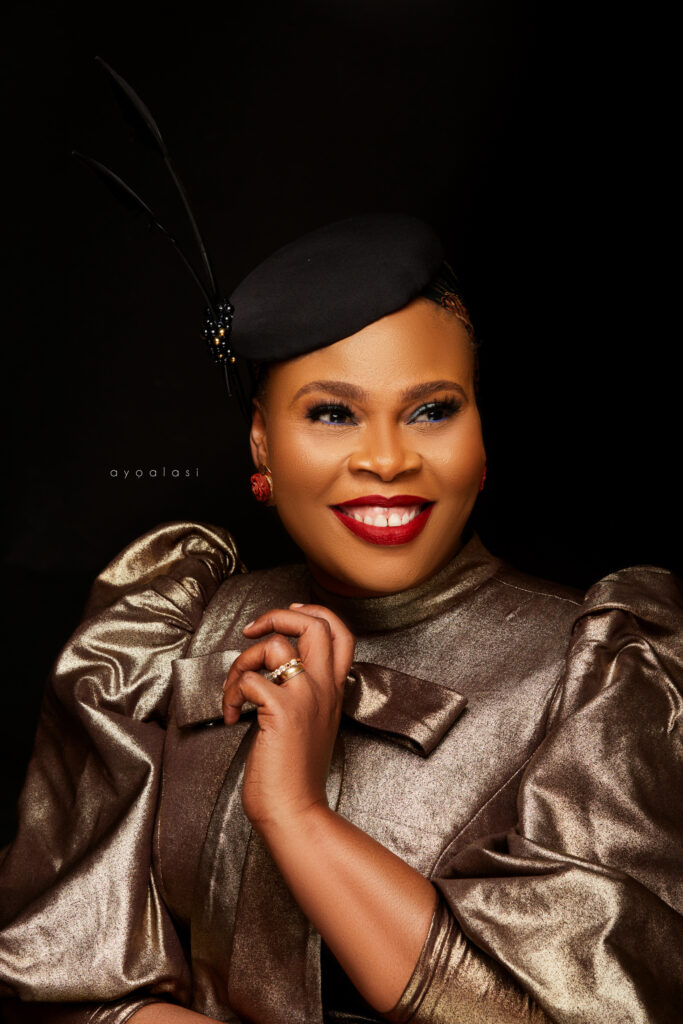
You created the ‘HOW BODI’ app as an innovative solution to mental health. How has technology helped expand your reach in mental health education and care?
The How Bodi App came during COVID. We all remember what happened during COVID. There was a lockdown, re-isolation, and everything that went wrong. And then the exodus. Then secondly, the exodus that we are experiencing now, not only health workers, narrowed down to the mental health professionals, we are needed outside the country than any other person because of a whole lot of the isolation, the loneliness, and all the things that are happening globally. So with this, How Bodi is not only a strategic, it is tech-powered response. So let me just narrow it down to three critical challenges, breaking the barrier of location and stigma. So with How Bodi, we have seen that it has really helped technologically. Why? Because understanding people, especially in Africa, walking into clinics due to fear, they are afraid that they’ll be judged, they’ll be shamed, they’ll be misunderstood. But they can pick up the phone. So that is one way How Bodi is meeting people where they are, anywhere they are, whether in traffic, whether at home, whether in the diaspora, whether in silence, in giving 24-hour access to confidential, culturally relevant mental health support. I must emphasise that. So, for us, our unique selling point in How Bodi is giving cultural relevance. So even the non-Nigerians and Africans who are boarding, we want to make sure that if you are on board therapy that is in Uganda, when a Ugandan logs in, it may be easier for the Ugandan to talk to the Ugandan therapist. Why? Because they feel that this person will give me a better culturally appropriate session than any other person. The second opinion is scaling mental health education. Through tech, we’ve been able to psycho-educate with our webinars, our seminars, and we have a daily assessment on How Bodi. How Bodi has wellness trackers. It has a menstrual tracker. It has a sleep tracker. It has a mood tracker. They are AI-powered that you can actually sit and say, I want to know what my mood is in the next one week. And at the end of that week, it will tell you what it is and how it is. How Bodi also has free assessments. And you can go and check it. It will deliver the results to you immediately. If you have anxiety, go and check. It will deliver the results immediately. The Google Play Store has a better version of How Bodi. We still have some challenges with The Apple Store from time to time but the Google Play Store is well elaborated and more robust. We have now added a venting room because some people don’t just want anybody to talk to. They want to vent. So you can get into How Bodi, vent, and the therapist will analyse all that you have said and send you a response on what it is. So there are free assessments there. There are free trackers there. And we do understand that it’s not a one-size-fits-all. If you want to even get inspired, some audios will just give you those sounds that will calm you down, manage your stressors. We’ve turned Mentality into something as normal as checking your weather app. That’s revolutionary. The third thing about this tech platform I want to talk about is building a first-aid-accessible pathway to professional care. So this app has been able to bridge users like the licensed therapists, the psychiatrists, the coaches, via chat and video. And so it’s reducing wait time and transportation costs and, of course, appointment anxiety. Because there’s still what we call whitewater hypertension. Not everybody likes the hospital setting. So this is helping to do that. And because it can be anywhere you are, those who are migrating, there’s a serious link with migration and breakdown of your mental health. And that can easily cause a challenge. So that is also helping those who are relocating. You need help. You need support to talk to somebody professional. How Bodi is doing that. That’s helped to triage emergencies and, of course, guide users on whether they need therapy, coaching, or psychiatric support. And so this smart integration has saved lives. And it’s saving lives. It’s helping to catch disorders early. It’s also empowering people to take charge of their mental well-being without confusion or fear. And so what we want to do with How Bodi is to make sure we recognise the most innovative mental health in Africa. We’re positioning it as that. But also to help normalise tech therapy culture among young Nigerians, Gen Z, and generally everybody. So this is just letting us know that tech isn’t just about convenience. It’s about dignity, access, and saving lives. And with my medical background and the advocacy that I’ve been doing over time, I’m just trying to make sure that we are having more healing spaces where people can get culturally appropriate therapy.
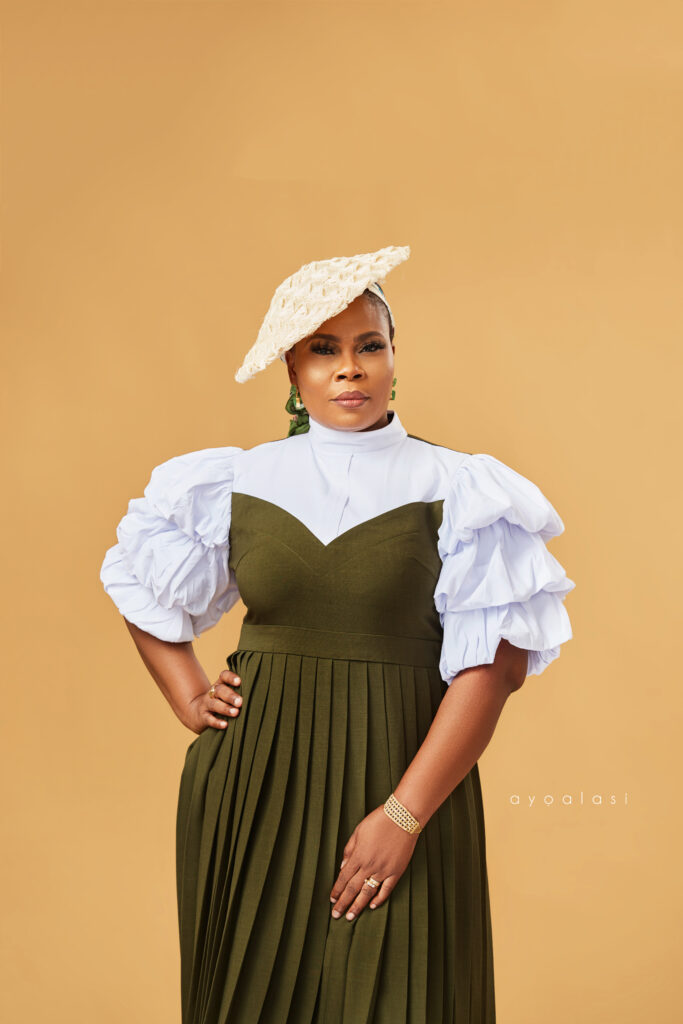
What are some common misconceptions Nigerians still hold about mental illness? And how do you address them in your practice?
So, mental illness is still seen as a sign of weakness or spiritual failure. This is the most common misconception. People will always say it is a spiritual attack or that the village people is after the person. So many Nigerians still view mental health conditions through the lens of spiritual warfare or weakness. And this misconception often leads to stigmatisation and a reluctance to seek professional help. So, how am I addressing it in my practice? I address it by showing more empathy and letting people know that mental illnesses are medical conditions, just like how we have physical illnesses. So, mental illness is under what we call the non-communicable diseases. And what are the non-communicable diseases? Hypertension, diabetes. Most of us have a parent or parents who have hypertension and diabetes. So, what is the big deal when they say somebody is dealing with mental illness? So it’s letting them understand that, you know, these are medical conditions, just like physical illnesses that are rooted in our biological makeup, in our psychological challenges we’re facing, and also the social factors, where you live and all that also can play a role in how people are. So through education and awareness campaigns that we have been doing, a lot of community outreaches, we are helping to debunk that idea by letting people know that seeking therapy or medication is not a sign of weakness. Not everybody will call me for medication. And that is completely okay. So my role in public health seminars and the focus of mental health conferences, like the theme of our first mental health conference, was The Mind Behind The Mask. And that was a game changer for us. It has helped people change their views by focusing on evidence-based treatments and mental health as an essential part of overall well-being. So that is the very first misconception. It’s a spiritual attack. It’s a sign of weakness. The second one is that mental illness only affects the mentally unstable or those with visible signs of distress. It’s a lie. Anybody can be, even me speaking to you as a psychiatrist, anything can happen to me because the truth is that I can lose somebody who is so dear, and that would just make me have challenges. I might already be primed to have a breakdown. And what do I mean by that? If I come from a family where there was a divorce of one or both of my parents, I’m already predisposed. If I come from a family where there was domestic violence, I’m already predisposed. If I come from a family where there was the death of one of my parents or both of my parents, I’m already predisposed. If I come from a home where there’s a positive family history of mental illness, I’m already predisposed. And of course, let’s just talk about sexual harassment or sexual abuse as a child. So, all those childhood adversities can already prime people into that. So, it’s not like a sign, it’s not like it only affects those who are mentally unstable. And the ways I’m doing that, of course, are letting them know through our webinars, through our seminars. The telemedicine platform has a blog part where we also talk about it and promoting the importance of any intervention and preventive care and letting people know that mental health is accessible to all, regardless of how disabled the condition may be. The third part is that mental health is incurable. So, the truth is that we have, and all medical conditions can be treated, but not all medical conditions can be cured. So, we need to delineate that. Most medical conditions are treatable, manageable, and beatable. But most of those medical conditions are not curable. We are not going to cure malaria, so to speak. So, how are we talking about mental illness? So, through our treatment modality, like I said, we have a preventive arm, a treatment in-patient arm. Those are ways that we are helping to normalise that in our practice, and the telemedicine platform is also part of it. A fourth misconception, I think I’ll just end in the fourth or five. So, another one is mental illness is a waste of concept. You and I know that it’s not for the white people. People here in Nigeria have mental illness, via some suicide, that some have even died by suicide. Because the studies have told us that one in four persons will have a mental illness in their lifetime, and Nigerians are not left out of that. Sadly, because out of these statistics that one in four Nigerians will have a mental illness in their lifetime, over 75 percent of Nigerians do not have access to mental health care. I must let you know. The National Health Insurance Agency that moved from health insurance into agency, has covered just 10 percent of Nigerians for insurance. We have over 200 million Nigerians for insurance. HMOs are doing the most, in the sense that most of them cover mental health, just because they don’t want to feel that they are not, they have not included mental health in it. They are not covering it the way it should be. They say if you are on admission, maybe three days or five days. This person may need two weeks’ admission. For even drugs, people who are having drug issues, they say, No, this is your problem. You are the one who went to take the drug. That is why you have drug-related issues. So it’s still a very bad thing, and that is the way we are advocating and letting people know that bad things can happen to good people. That doesn’t mean that people do not deserve care, people do not deserve safe spaces, and so on. So yeah, those are some of the things addressing these misconceptions in my daily practice, in public campaigns, and creating more platforms so that people can be more open-minded to approach mental health in Nigeria, to speak about it, you know, and then help, encourage help-seeking behaviour. And this has been a movement, and generally, we can see that the stigma is gradually reducing and people are embracing therapy as a norm. One other major misconception is that therapy is too expensive. No, that’s not true. Just like How Bodi is helping make it more accessible, that is how we are helping too. Some will say Therapy is like 30 to 40 thousand and even 50 thousand. Sometimes, in some people’s profiles, you will see therapy cost for 400 thousand naira. For How Bodi, when you log into it, it will first give you a 15-minute free session, just to know if you really need the session and if they can refer you to somebody, because on that platform, there are psychologists, there are licensed therapists, and even coaches. So, How Bodi is helping erase that misconception.
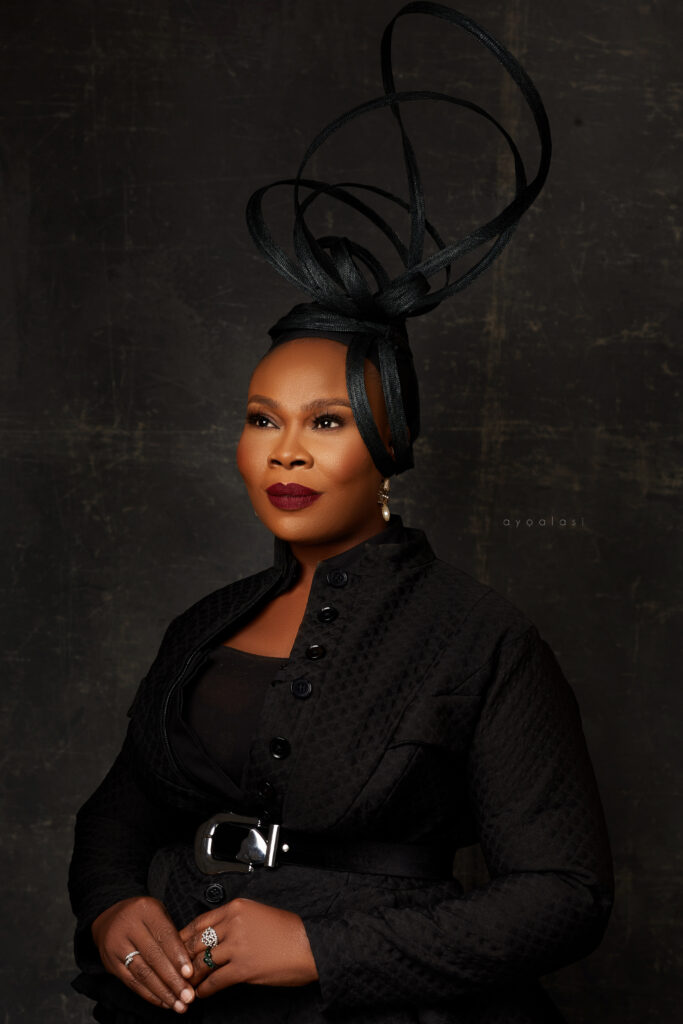
How do you approach treating workplace-related mental health issues, and what advice do you give corporate organisations struggling with employee burnout?
We do that through our employee assistant program. So this service started way back in the 70s or 60s in the United state and they were doing more of drug rehabilitation but with time, they found out that people are not only doing drug rehabilitation, an individual is faced with financial challenges, physical problems, emotional issues, psychological problems, and so on and that has made the employee system program either better and more holistic. One way we are doing workplace mental health is by setting a holistic assessment and individualised treatment. What do we mean by that? We focus on a comprehensive approach that combines therapy, stress management techniques, and work-life integration strategies because we understand that mental health challenges such as burnout, anxiety, and depression may stem from both personal and environmental factors. So we thought of creating ways in which the workplace can be a space where people get empowered and supported, so that is one thing we are doing in ensuring that this holistic approach for assessment, and of course, creating a safe space for the individualised treatment. So our answer to the corporate organisation is to encourage them to implement an employee well-being program that not only provides access to counseling or therapy, but also provides access to address the root cause of workplace stress. We do webinars every quarter, we send them report every month, and we analyse that report to them yearly, so that they can take congnisance of what is happening within their organisation and in that report, we are telling you the numbers of male and female that fill in, the issues they presented with, and what we are doing for them. Those give you a better analysis to help in reducing the burnout, and we do understand that anxiety and depression with substance abuse are the three top mental health challenges that individuals can have, especially adults. As we speak now, depression is the highest burden of disability worldwide, and it is not a disability where someone is in a wheelchair, or is blind or deaf. This is a burden that is sitting right there with you in the office, and you don’t know. So the second part of it is for preventive measures and awareness, so the truth is that we are incorporating education and awareness into our treatment plan, thereby ensuring that the client and patient recognise early signs of mental illness challenges before they lead to burnout. Some people don’t know that they are burning out. Some people don’t know that they have reached their limit, and this includes stress management workshops that we are doing, mindful practices, and emotional resilience training. We are asking organisations to do a workplace wellness program focusing on prevention. So we are working largely with HR. The HR department is where Human Resources takes care of every person in an organisation. This involves watch-ups on emotional intelligence, resilience building, stress management techniques, and also helping employees to recognise early signs of burnout. With the organisation we are working with, we now see people talking freely about their mental health. So, I will advise public organisations to promote flexibility and work arrangements.

This year’s theme for Mental Health Awareness Week is “Community.” What role does community play in a person’s healing journey and mental well-being?
Community serves as a way of social support and emotional resilience. Secondly, to decrease stigma and normalise mental health conversations. The third part is access to resources and collective healing. Well, the community offers access to valuable resources that can aid in the healing process. And this access to valuable resources, we’re talking about, like information, mental services, peer mentoring, and even tangible support as food or financial help during the crisis. So there are so many, this is about community. This is about belonging to one community or the other. And this year’s theme for Mental Health Awareness, when they talked about community, I was very happy because, yes, we all belong to a community. Let us make the community healthier for all of us. So the fourth part is that community is a sense of belonging and purpose. Some of us want to just find a sense of purpose. Why? Because a sense of belonging to a community fosters a greater sense of purpose, which is vital for mental well-being. It offers individuals a place where they feel valued, contributing to improving their self-esteem and a sense of meaning. So having this theme this year as a community is importan. They said the fourth COVID is coming. Fourth COVID that they mean is the meaning that there’ll be an increase in the rate of mental illness. Are we already experiencing it? Yes. It’s just a whole lot. We are all faced with the challenges, global inflation, changing leadership, and a whole lot. So that sense of belonging and purpose is very key. Another aspect of the team, which is communities, is accountability and motivation. In every community, of course, we know that we are destiny healers, but they’re also destiny helpers, right? So the community provides accountability and encouragement for us, which is key for maintaining progress in mental health. And it’s very important. Community also helps to build cultural relevance and community-centered healing. Like, how about this week? We are delivering culturally appropriate therapy. So the community offers relevant forms of healing that can be particularly important in context. Like, for example, in Nigeria, where mental health struggles might be viewed through cultural or spiritual lenses. So it brings that cultural relevance and community-centered healing into place. Community also helps in advocacy and policy change. We know that on a broader level, the community plays a role in advocating for mental health policies. Whether better resources, systemic changes, we know what it is. You see, people in this community gathered and they went to meet the government. They want better roads. They don’t want to be Band A anymore. And how strong that can be, you know, in changing the whole approach. On my final thoughts on community, I think the theme for this year aligns well with the approach to mental health care. Why? Because it recognises the collective responsibility and power that the community has in the healing process. So community isn’t just a support network for individual healing. It’s also a powerful tool for social change, resource sharing, and, of course, it’s also resilient.

You’ve produced films like Little Drops of Happy and Pepper Soup. Why did you choose film as a tool to speak about mental health, and how has the reception been?
So we started with a short movie, Pepper Soup. Pepper Soup focused on drug abuse and how even the nicest, most friendly, most godly or spiritually minded person can become a prey to drug abuse without them even knowing. So Pepper Soup was more like, you know, this is a young man who loves to take Pepper Soup. He doesn’t drink. He doesn’t smoke. He doesn’t womanise. It was his wedding period. He felt it was stress. He was brought into the hospital thinking that it was stress that was wrong with him. And then by they ran tests on him they found marijuana in his system and narrowed it down. It was the Pepper Soup he used to buy that had marijuana in it. So we needed people to understand that, look, you can be the best of persons, but you can also go into an abuse that you never really know. Just the way some ladies have very painful menstrual period and then they will give them a particular injection, Pentazocine, and they say, ah, there’s one injection they give me that is very good. It takes the pain away and when it’s happening, they start craving it. So pain breaks the silence, and it reduces stigma. So why pain? Pain has a unique ability to portray the complexities of mental health in a relatable and accessible way. That’s it. It has a wider reach. It brings attention to issues that are often overlooked or stigmatised. You know, like this case of this drug abuse that people may not even know. When you keep going to one particular joint, you need to ask yourself if it is genuine or there’s something wrong somewhere. So it shines a lot of light on topics that are overlooked, like what you talked about, depression, anxiety, and other mental health conditions. When mental health struggles are presented through compelling stories, they humanise the experience and encourage empathy. With Little Drops of Happy and Pepper Soup, what I’m doing is using storytelling to challenge the cultural taboos and misconceptions surrounding mental health and also to portray mental health struggles in every scene, like particularly within the Nigerian and African context, helping to break the stigma and opening doors for more open conversation about issues. So from Pepper Soup, we went to Little Drops of Happy that focused on depression, postpartum depression, and stigma. You’ve had your baby, you are happy. Baby and mom are alive and doing well. Then why would you want to now get to the extent that you want to even kill yourself or kill the baby? It can be as bad as that. So films educate and spark conversation. PIMs are very powerful tools for education, showcasing the impact of mental health on individuals and communities. Films spark conversation that might otherwise not happen. It allows viewers to reflect on their own experiences and engage in dialogue about mental health in a non-threatening way. So with the things we have done, what I’m doing with my team is to educate the public on the importance of mental well-being, particularly in a cultural context where this conversation may be avoided. So through Little Drops of Happy, through Pepper Soup, what we have done now is create spaces for viewers to reflect on their assertion of mental illness, making them more aware of the emotional and psychological challenges that people face on a day-to-day basis. Like I said earlier on, it reaches a wide audience. Like for us, Little Drops of Happy was sponsored by Fund Foundation. After we have made it and released it on the premier day, the country director of Fund Foundation was in the audience. I didn’t know. And when we finished, he said, I need this movie to be showcased all over Nigeria. So we teamed up with Genesis Cinema and were able to show it to more people. It’s on YouTube right now, and so more people keep watching it and getting educated about mental health and sharing their own experiences with the comments that come in. Team-making is also a representation, and it creates empowerment because mental health is portrayed in one dimension now or stereotyped way in the mainstream media. If you think about mental health in Nigeria, what do you think of? You are thinking of one violent person. You are thinking of somebody eating from the trash. You are thinking of somebody who is wearing dirty clothes? You are thinking of somebody who is, you know, irrational. No. Through the movies we have done, we have provided an authentic representation of mental struggles, showing the nuances of people’s experiences and giving voice to those who are often marginalised. So we are not just saying that you must eat more, you must be running after Mercy Johnson or Toyin Abraham or Jim Iyke, fighting and being violent. We are not doing all that. So we brought these two movies to represent different facets of mental health. Then I didn’t understand how Twitter works. There was a whole discussion on Twitter. Then it was Twitter, not X-Space, you know, because the lead actor Ayoola Ayoola had an injury on set. He bled, and it went viral. He had to reach out to me and say, Dr. May, write a story to let people know what really happened. It was a mistake that happened. It was not related to his behaviour. He was not even wearing shoes. On a movie set, anything can happen, right? I was like, how do they do this? That was 2017. Let me check. How do they do this thing, whatever it is? It was a whole experience for me. It was really empowering. The people on set were empowered. Likewise, the men on set, when they watched it, Osas Ighodaro was our lead actress. The way she did it, the postpartum depression. Some men came with their wives the following day on set to just appreciate the fact that their wife went through this, and they never knew it was called postpartum depression. It’s just exciting how it is and how the recession of movies has been formed over time. They are powerful, particularly within communities where mental health is often overlooked or stigmatised. The audience, the way they appreciated it, the reach we had, the fallback and the follow-up we had with it. So, yes, movies have been a major way for me to not just be in the normal regular clinical setting or set up a telemedicine platform but also letting Nigerians know that you don’t have to tear your clothes, you don’t have to remove your wig and look dirty for us to feel that that is what men have to represent. I must tell you in this interview that the people on the street you see behave that way are just 1 percent of those that have mental illnesses. 99 percent of those of us that have mental illnesses are us; we dress well, we wear our red lipstick, we wear our red tie, we go to the office, we are productive, we discuss and all that. I call it packaged madness. But we need to know that we have to change this narrative, and with movies, this has helped well. So, film is a powerful tool to address mental health because it can invoke empathy, educate, and engage a wide audience on a personal level. Given my passion, mental health, advocacy, and storytelling, these films have served as a bridge between the clinical world and the public, fostering open conversations and understanding. And the reception has likely been positive as the movies are giving voice to important mental issues while offering viewers a meaningful and emotional connection to the subject. By continuing to use film as a tool for mental advocacy, I’m just helping to dismantle stigma, promote healing and encourage action towards better mental well-being in society. I’m not coming in as a professional. I have to break the blockbuster. Yeah, the money is good, but my way is to just help dismantle stigma, promote healing, and encourage action towards better mental well-being in our society.
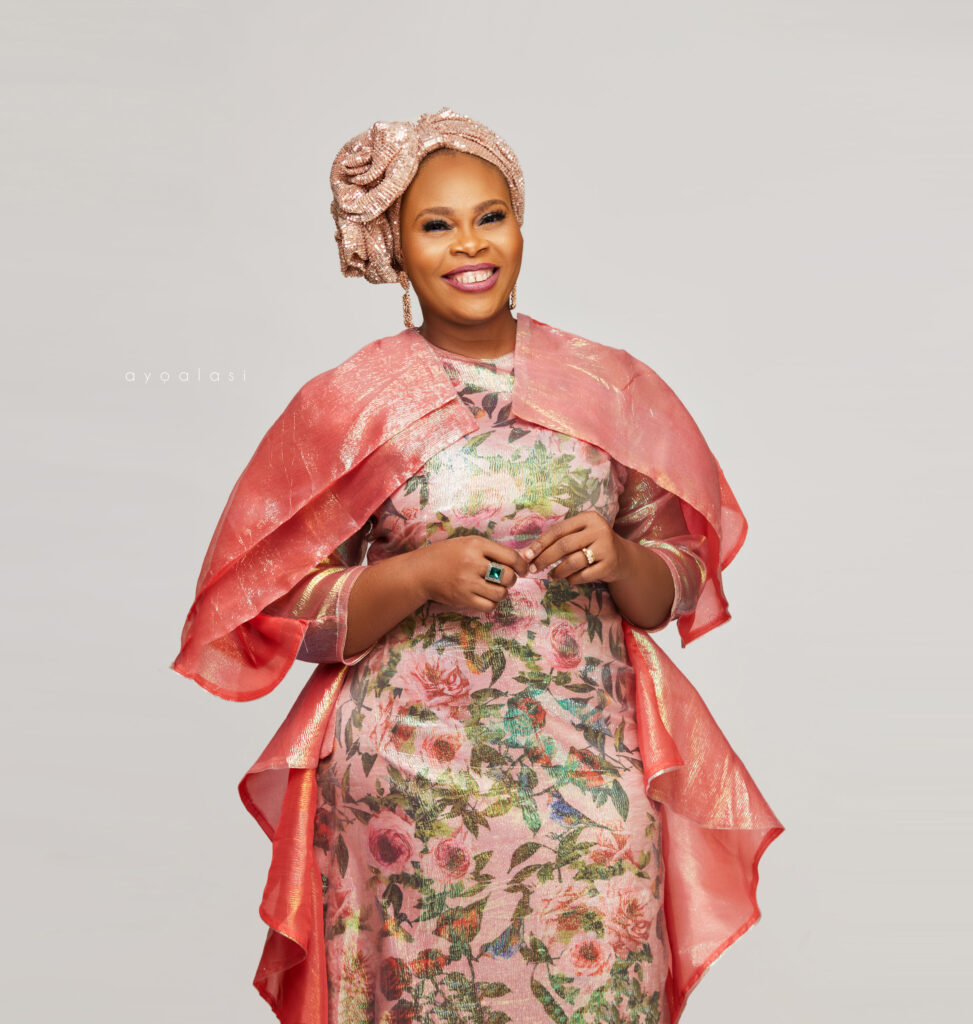
With all you’ve accomplished, what legacy are you most proud of, and what is the one message you want every young Nigerian, especially girls, to remember about mental health and purpose?
So what am I most proud of as a trailblazer in the mental health space, particularly from advocating for providing accessible mental health to Nigerians and across Africa. I’ve been working and I’m still working to break the stigma surrounding mental health. The conversation has started, the movement has started, and using a variety of platforms, be it through my practice, the movies, the committee outreach, the thought leadership in conferences, the telemedicine platform, I just want to make sure that the work I’m putting in is not only raising awareness of mental health, but also bringing about critical mental health discussions into the open, inspiring many to seek help, break down the barriers, and of course, advocating for better systems of support. I must let you know that, in January 2023, the mental health bill in Nigeria was approved to be a Mental Health Act. Myself, my association, different associations, and of course, other CSOs, we moved, we walked all behind the scenes to make this happen. And I was so glad that finally, our Mental Health bill is now up, and I’m happy that I was part of that discussion. So my biggest constituency in mental health advocacy concerns children and women, or women and children. It’s also through our campaigns, gender equality, and the support given to entrepreneurs that is a significant part of the legacy I want to leave. There’s a psychological price to entrepreneurship, and being an entrepreneur, that is also a part of my primary constituency. Women are not a constituency I belong. Entrepreneurship is a constituency I also belong to, and it’s important that is find and engage in pleasurable activities. Giving young women and girls the tools to overcome mental roadblocks and align their thought resources, helping them recognise their worth, embrace their purpose, and thrive in spaces that men have traditionally dominated. For me, that’s what I want to make young girls know about. So this effort is just helping me to shape the future of these young women and to create that ripple effect that will be felt for generations yet to come. So one message that I want to leave for that Nigerian, especially the girls, to remember about mental health and purpose, is that I want young Nigerians, particularly girls, to remember that mental health is likely centred on the idea that mental health is fundamental to a fulfilled life and purposeful journey. It’s something that shapes the ability to succeed, connect, and live fully, and should never be neglected or overlooked. So I would tell that young girl out there, your mental health is the foundation of your future. Without it, all the ambitions, success, and dreams would be hard to achieve. Know that it is okay not to be okay sometimes. Picking up is a sign of strength, not weakness. Your purpose is powerful, and taking care of your mind, your body, and soul is essential to fulfilling that purpose. Don’t let societal pressure, fear, or self-doubt hold you back. It’s impostor syndrome. Remember, you are enough, and you are capable, and your mental health is just as important as your dreams.
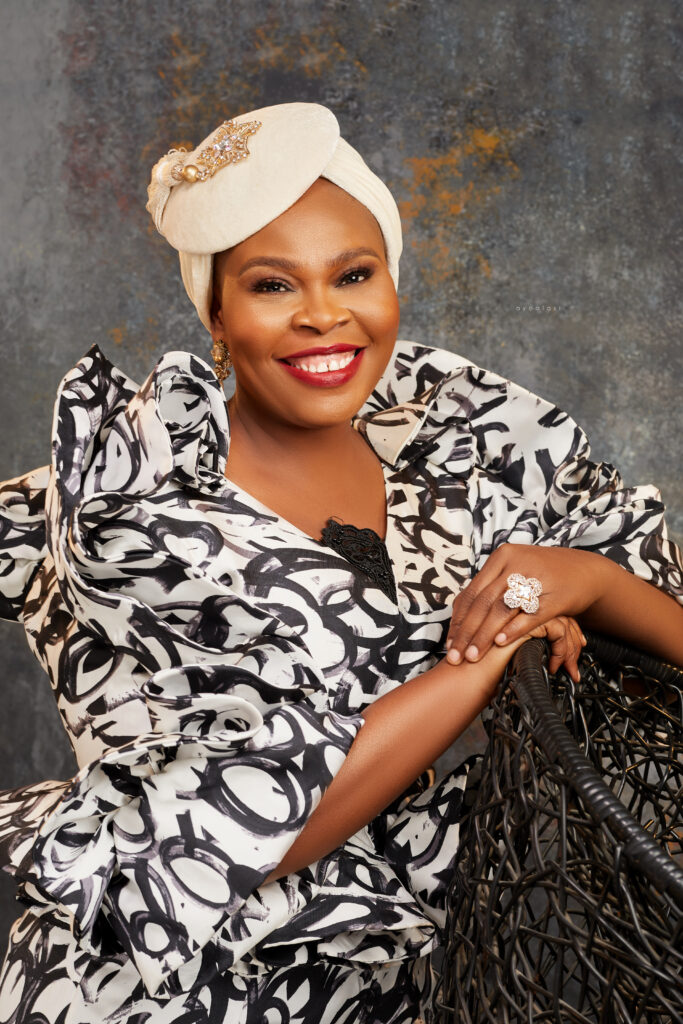
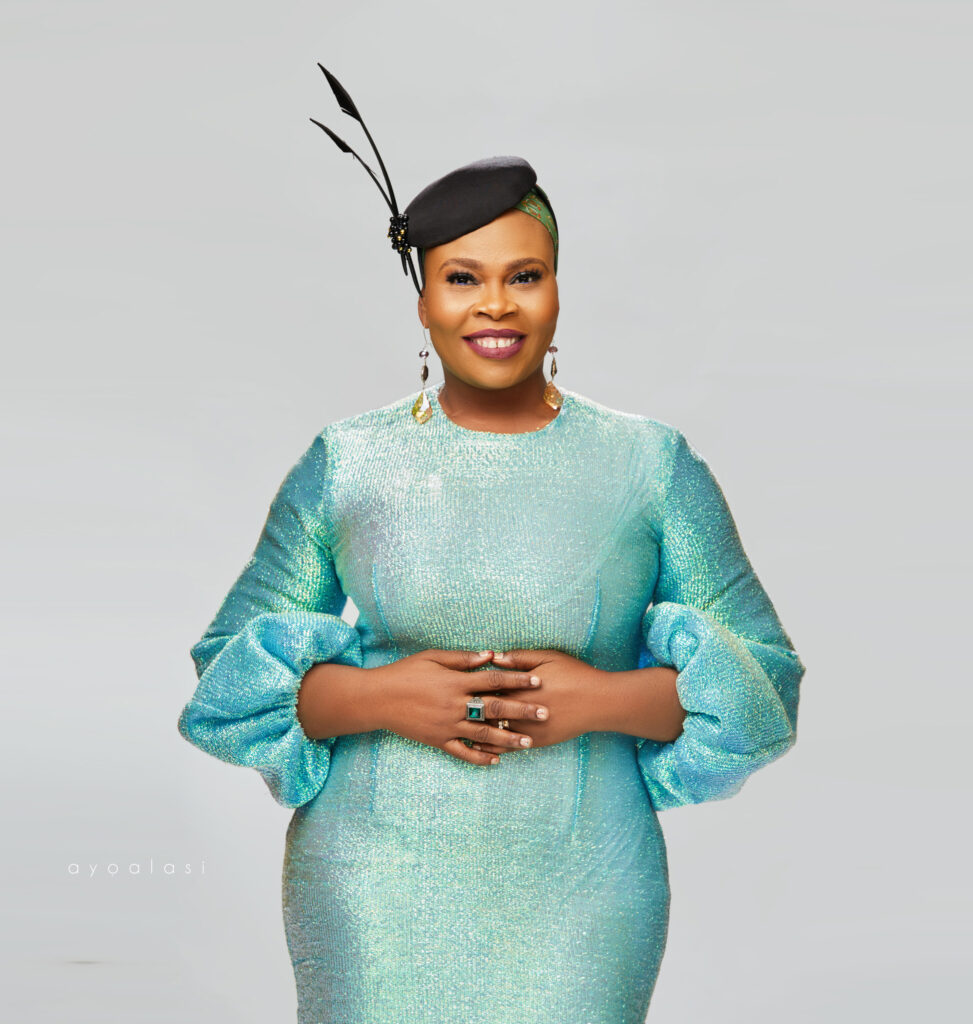
Images: Ayo Alasi

Dorcas Akintoye is a versatile writer with a passion for beauty, fashion, relationships, and culinary delight. With a keen eye for detail and a passion for storytelling, she adds a touch of elegance to every topic she explores. She is a writer at THEWILL DOWNTOWN.




